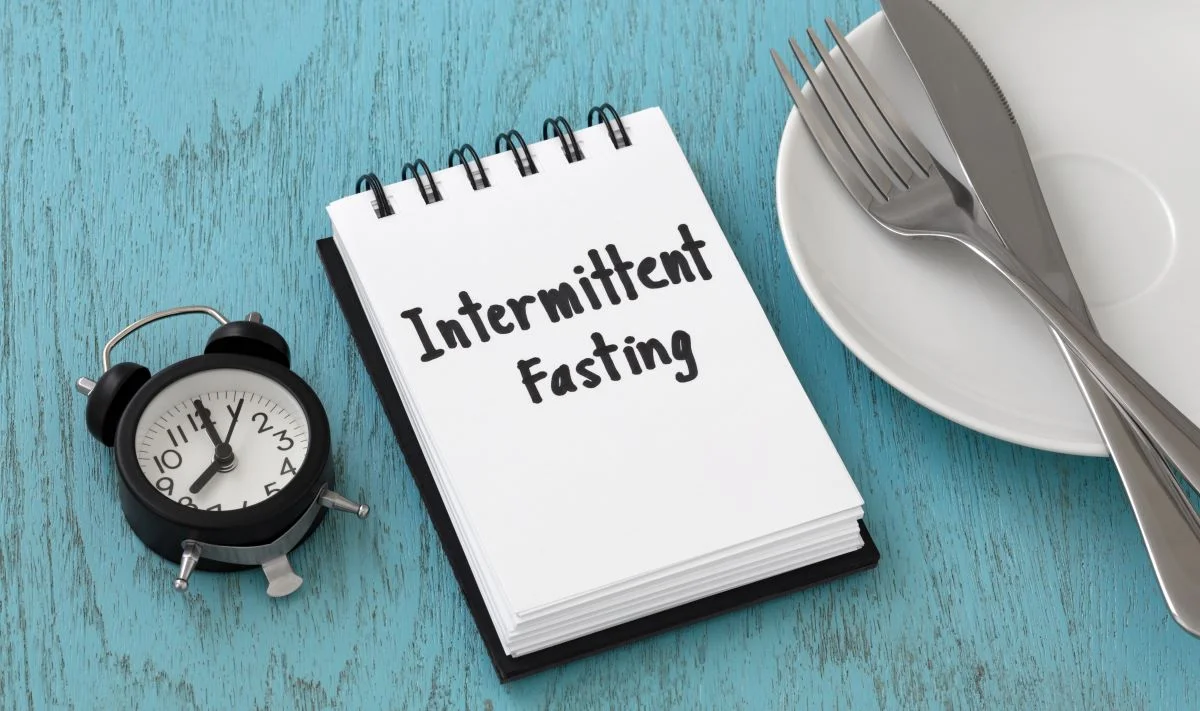Can You Take a Break From Intermittent Fasting on Weekends?
Dieting can just be grueling!
Counting every bite of food that you eat, passing on the potato chips or cookie that looks and sounds amazing.
Well, for a lot of people who want to ditch the dieting roller coaster (me included), intermittent fasting is a good option.
Intermittent fasting focuses on when you eat and not what you eat.
So, yes, you can have the potato chip or cookie—as long as it’s during your eating window and not during your fasting period.
This has made intermittent fasting a popular alternative to dieting for weight management and improving health.
Since it alternates periods of eating with periods of fasting, it can lead to several possible health benefits.

It’s a flexible method you can adjust to fit your lifestyle.
You can decide how long your fasting window should be and then fit it into a time frame that works for you.
So, whether you’re an early morning riser or a night owl, it doesn’t matter; you pick your times.
Lifestyle flexibility is one of the main reasons that people are attracted to an intermittent fasting plan.
But what happens when your schedule changes a bit, like on the weekends, due to social activities, or when you just want a break from structure?
Can you take a break from intermittent fasting on weekends?
Will taking a break from intermittent fasting mess up your efforts and goals?
Well, taking an occasional pause can possibly help you stick with the routine long term.
However, taking a break from intermittent fasting on weekends can also negatively affect your progress.
So, whether you decide to continue strict fasting on the weekends or allow for some flexibility on the weekends, even if it’s occasional breaks for special occasions, being informed about the effects of your choices can help you make decisions that meet your goals and lifestyle.

Intermittent Fasting Schedule
Intermittent fasting is time-restricted eating, alternating eating periods with fasting periods.
There are different ways to do intermittent fasting, such as:
- 18/6; 16/8 or 14/10 method: Involves fasting for 18, 16, or 14 hours each day and eating all meals within a 6, 8, or 10-hour window.
- 5:2 diet: You eat normally for five days of the week and 500-600 fewer calories for the other two days.
- Eat-Stop-Eat: You do a 24-hour fast once or twice a week.
The best option is whatever is a good fit for your personal preference.
Possible Benefits of Intermittent Fasting
You may experience numerous health benefits from intermittent fasting:
- Weight loss: By reducing the number of calories and extending fasting periods.
- Improved metabolic health: This can lead to better blood sugar levels and reduced inflammation.
- Brain health: Can help with cognitive function.
Common Challenges
As you begin your intermittent fasting routine, you might have to jump over a few hurdles like:
- Hunger pangs and cravings: Especially early on as your body adjusts to your new normal eating pattern.
- Social engagements: Causing challenges with timing meals and fasting periods.
By being more flexible with your eating times you can make intermittent fasting easier to continue long term.
Can You Take a Break from Intermittent Fasting on Weekends
Intermittent fasting doesn’t have to be an all-or-nothing thing.
Taking breaks every weekend or when events cause you to pivot can make this lifestyle more manageable.
Why Take Breaks
There could be several reasons that you want to take a weekend break.
We have all had those weekends that are super active with social events, which may require you to be more flexible with your eating schedule.
Some studies have actually suggested that occasional breaks can help people stick with the intermittent fasting method because they feel less restricted.
Adapting Fasting to Lifestyle
You might prefer fasting on weekdays when you have a normal routine, making it easier to stick to your fasting schedule.
On weekends, you may want to allow yourself to take a break so that you can enjoy brunches or dinners out with your friends and family.
The key is to create a balance that fits your social life and personal preferences while still meeting your fasting goals.
Impact on Fasting Goals
Taking weekend breaks may or may not impact your fasting goals, it varies depending on your personal goals and objectives.
For example, if your goal is weight loss, then you want to think about what you calories you are taking in so that you don’t overindulgence.
This can derail your calorie deficit that you stuck with during the week.
If health benefits like improved insulin sensitivity are your focus, understand that consistency is important.
Still, occasional breaks are unlikely to upset the long-term health benefits of intermittent fasting severely.
Guidelines for Weekend Breaks
When considering breaks from intermittent fasting on the weekends, it’s important to remember a few rules to maintain your health and progress.
Maintaining Balance
To continue the benefits of intermittent fasting while taking weekend breaks, keep your caloric intake equal to your weekly average.
Track your weekday intake and aim for a similar range on weekends.
Focus on a well-balanced, healthy diet with nutritious foods, including lean protein, whole grains, healthy fats, and raw fruits and vegetables.
Limit unhealthy foods, aka junk food.
Mindful Eating Practices
Eating mindfully on weekends helps you to continue the routine of intermittent fasting.
For portion control, try using smaller plates and check serving sizes to avoid overeating.
Eat slowly and take your time when chewing your food. this can prevent binge eating.
Physical Activity Considerations
Staying active can help fight those extra calories that you snuck in during your weekend breaks.
Try to do at least 30 minutes of moderate exercise every day.
Choose activities you enjoy to stay motivated, like hiking, biking, or tennis.

Pros and Cons of Fasting Breaks
Exploring the option of taking breaks from intermittent fasting on weekends can impact the effectiveness of your routine.
It’s important to consider how these breaks might affect weight management, metabolic health, and psychological well-being.
Weight Management Effects
Pros:
- Taking a break can decrease the stress of strict routines, potentially improving long-term compliance.
- It can allow for social events without the guilt of breaking your fasting schedule.
Cons:
- Frequent breaks can slow down your weight loss progress by increasing your weekly calorie intake.
- It can cause overeating during non-fasting days.
Metabolic Responses
Pros:
- Breaks might boost metabolism if you avoid the potential for metabolic adaptation to a lower calorie intake.
- It gives your body a break from the continuous fasting cycle, which you might find beneficial.
Cons:
- Consistent fasting is needed to maintain metabolic benefits such as improved blood sugar control.
- Irregular fasting patterns could disrupt ketosis if you use intermittent fasting to achieve this metabolic state.
Psychological Aspects
Pros:
- Breaks may improve your mood and decrease feelings of depriving yourself, making the diet more sustainable.
- You may enjoy a more flexible lifestyle which can be better for mental health in the long run.
Cons:
- Regular interruptions in the fasting routine could lead to decreased discipline and a weaker mindset toward dieting goals.
- You might face difficulty getting back on track after indulging on weekends which can impact your overall motivation.
Strategies to Resume Fasting
Successfully resuming intermittent fasting after taking a weekend break involves gradual changes, realistic expectations, and a supportive environment.
Setting Realistic Goals
Choose goals that are realistic.
If your ultimate goal is a 20-hour fast, work up to it rather than starting there right after your break.
- Identify your target fasting duration.
- Outline a progressive plan to reach it over a few days or weeks.
- Monitor how you feel, adjust your goals as necessary.
Support and Motivation
Find a buddy or a community that also fasts to keep you accountable and motivated.
How Long Should You Do Weekday Intermittent Fasting For Maximum Benefits?
The duration of weekday intermittent fasting for maximum benefits is different for everybody.
It depends on your health goals, metabolic health, lifestyle, and how your body responds to fasting.
Some people can see huge benefits within a few weeks, while others might need to follow the intermittent fasting plan for several months to get the results they are looking for.
Research suggests that many of the benefits of intermittent fasting, can be noticed within the first few weeks to months of consistent routine.
For example, a period of 8 to 12 weeks of consistent intermittent fasting can often show noticeable results in weight loss and metabolic improvements.
However, the key to successful intermittent fasting is consistency and long-term adherence.
It’s not just about how long you do it for maximum benefits, but also how well you work it into your lifestyle.
Intermittent fasting is a lifestyle change not a short-term diet plan.
The “maximum benefits” of intermittent fasting depends on what specific benefits you are looking for.
For instance, if your goal is weight loss, you might measure success differently than someone who is fasting primarily for improved blood sugar control or longevity.
Before starting any fasting journey, you should talk to your healthcare provider to make sure that this is a good option for you and your health status.
It may not be recommended for you if you have a history of eating disorder or other chronic diseases that may not pair well with an intermittent fasting plan.
FAQs on Intermittent Fasting and Breaks
Taking breaks from intermittent fasting on weekends is a common concern.
Here’s what you need to know about its impact on progress and how to handle social occasions and nutritional queries.
Effect on Progress
Will taking weekends off from intermittent fasting affect my progress?
- Yes: If you indulge more on weekends, it can slow down weight loss.
How can I minimize the impact on my fitness goals?
- Consistency: Stick to healthy eating.
- Activity: Increase physical activity to balance calorie intake.
Managing Social Occasions
How do I handle social events on weekends without breaking my fast?
- Schedule: Align your eating window with social events when possible.
- Flexibility: Allow yourself some flexibility to enjoy these moments.
Health and Nutrition Queries
Is it unhealthy to pause intermittent fasting on weekends?
- Not Necessarily: If balanced, taking breaks may not harm your overall health goals.
Does a break from fasting require dietary adjustments?
- Mindful Eating: Focus on whole foods and avoid overeating.
Can I still get the benefits of intermittent fasting with weekend breaks?
- Partial Benefits: Consistent fasting during the week still offers some benefits.
Conclusion
Including weekend breaks from an intermittent fasting plan can be a flexible approach that accommodates social events, personal preferences, and psychological relief while still reaping the benefits of fasting.
It’s important to listen to your body and find a balance that works for you, ensuring that any modifications to your fasting schedule align with your health goals and lifestyle.
By doing so, you can maintain the sustainability of your intermittent fasting journey, avoid burnout, and potentially enhance your long-term adherence to this dietary pattern.
Remember to consult with a healthcare professional before making significant changes to your diet, especially if you have underlying health conditions.

Temp mail I very delighted to find this internet site on bing, just what I was searching for as well saved to fav
So glad to hear that you found this helpful!
I’m so glad that you found it to be helpful. It’s very frustrating and painful when you experience it for sure. Hope you feel better soon.